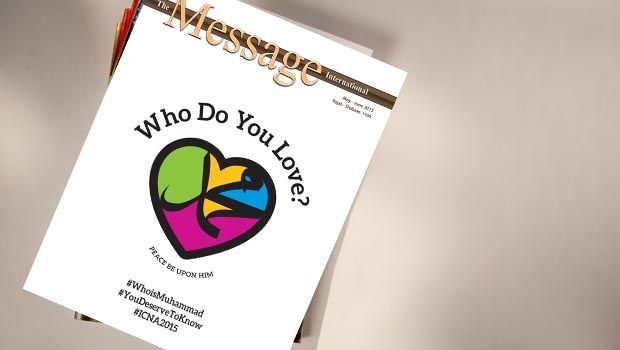The life of Aishah (may Allah be pleased with her, radiallahu anha – R) is proof that a woman can be far more learned than men and that she can be the teacher of scholars and experts. Her life is also proof that a woman can exert influence over men and women and provide them with inspiration and leadership. Her life further demonstrates that such a woman can be totally feminine and a source of pleasure, joy, and comfort to her husband.
The bulk of her vast treasure of knowledge was obtained while she was still quite young. In her early childhood she was brought up by her father who was greatly liked and respected for he was a man of wide knowledge, gentle manners, and an agreeable presence. Moreover, he was the closest friend of the noble Prophet who was a frequent visitor to their home from the very early days of his mission. In her youth, already known for her striking beauty and her formidable memory, Aishah came under the loving care and attention of the Prophet himself. Then, as his wife and close companion, she acquired from him knowledge and insight such as no woman has ever acquired.
Aishah’s (r) Remarkable Memory
One incident demonstrates her remarkable memory which was so instrumental in her acquisition of knowledge. Once her father and two companions who were staying with him fell ill with a dangerous fever which was common in Madinah at certain seasons. One morning Aishah went to visit him and was dismayed to find the three men lying completely weak and exhausted. She asked her father how he was, and he answered her in verse but she did not understand what he was saying. The two others also answered her with lines of poetry which seemed to her to be nothing but unintelligible babbling. She was deeply troubled and went home to the Prophet and told him, “They are raving, out of their minds, through the heat of the fever.” The Prophet asked what they had said and was somewhat reassured when she repeated almost word for word the lines they had uttered and which made sense although she did not fully understand them at that time. This was a demonstration of the great retentive power of her memory which, as the years went by, gave her the capacity to preserve so many of the priceless sayings of the Prophet.
The Prophet’s (pbuh)Love for Aishah and Her Love for Him
Of the Prophet’s wives in Madinah, it was clear that it was Aishah that he loved most. From time to time, one or the other of his companions would ask, “O Messenger of God, whom do you love most in the world?” He did not always give the same answer to this question for he felt great love for many, for his daughters and their children, for Abu Bakr, for Ali, for Zayd, and for his son Usamah. But of his wives the only one he named in this connection was Aishah. She loved him greatly in return and there was an element of jealousy. She could not bear the thought that the Prophet’s attentions should be given to others more than seemed enough to her. She asked him, “O Messenger of God, tell me of yourself. If you were between the two slopes of a valley, one of which had not been grazed whereas the other had been grazed, on which would you pasture your flocks?” “On that which had not been grazed,” replied the Prophet. “In the same way,” she said, “I am not as any other of your wives.” She continued, “Every one of them had a husband before you, except myself.” The Prophet smiled and said nothing. Although she had jealousy and admitted that, it was never expressed in a destructive way.
Aishah (peace be upon her) not only possessed great knowledge, she took an active part in education and social reform. As a teacher, she had a clear and persuasive manner of speech and her power of oratory was outstanding!
Aishah’s (r) Virtuous Character
Aishah was a generous soul and a patient one. She bore with fortitude, along with the rest of the Prophet’s household, poverty and hunger which often lasted for long periods. For days on end, in the sparsely furnished house of the Prophet, no fire would be lit for cooking or baking bread and they would live merely on dates and water. Poverty did not cause her distress or humiliation. And when somewhat easier times came along, that did not corrupt her modest and simple style of living. Once the Prophet stayed away from his wives for a month because they had requested some material comforts that he did not incline to. This was after the Khaybar expedition when an increase of goods whetted the appetite for material things.
Returning from his self-imposed retreat, he went first to Aishah’s apartment. She was delighted to see him but he said he had received Revelation which required him to put two options before her. He then recited the verses: “O Prophet! Say to your wives: If you desire the life of this world and its adornments, then come and I will bestow its goods upon you, and I will release you with a fair release. But if you desire God and His Messenger and the abode of the Hereafter, then verily God has laid in store for you an immense reward for such as you who do good” (Quran 33:28-29). Aishah immediately replied, “Indeed I desire God and His Messenger and the abode of the Hereafter,” and a similar response followed from all the other wives. She stuck to her choice both during the lifetime of the Prophet and afterwards. Later when the Muslims were favored with enormous riches, she was given a gift of one hundred thousand dirhams. She was fasting when she received the money and she distributed the entire amount to the poor and the needy even though she had no provisions in her house.
Aishah (r) During the Prophet’s Last Days
The Prophet’s affection for Aishah remained to the last. During his final illness, he stayed at Aishah’s apartment, at the suggestion of his other wives. For much of the time he lay there on a couch with his head resting on her breast or on her lap. Indeed, it was Aishah who has preserved for us the account of these dying moments of the most honored of God’s creation, His beloved Messenger, may He shower His choicest blessings on him. Aishah once took a tooth stick from her brother, chewed upon it to soften it and gave it to the Prophet. Despite his weakness, he rubbed his teeth with it vigorously. Not long afterwards, he lost consciousness and Aishah thought it was the onset of death, but after an hour he opened his eyes. When he opened his eyes again, Aishah remembered previously being told, “No Prophet is taken by death until he has been shown his place in Paradise and then offered the choice, to live or die.” She said to herself, “He will not now choose us.” Then she heard him murmur, “With the supreme communion in Paradise, with those upon whom God has showered His favor, the Prophets, the martyrs and the righteous…” Again she heard him murmur: “O Lord, with the supreme communion,” and these were the last words she heard him speak. Gradually his head grew heavier upon her, until others in the room began to lament, and Aishah laid his head on a pillow and joined them in lamentation. In the floor of Aishah’s room, near the couch where he was lying, a grave was dug in which was buried the Seal of the Prophets amid much bewilderment and great sorrow.
Aishah’s (r) Great Knowledge
Aishah lived for almost 50 years after the passing away of the Prophet. She had been his wife for a decade. Much of this time was spent in learning and acquiring knowledge of the two most important sources of God’s guidance, the Quran and the Sunnah of His Prophet. Aishah was one of three wives (the other two being Hafsah and Umm Salamah) who memorized the Revelation. Like Hafsah, she had her own script of the Quran written after the Prophet had died. Regarding the ahadith (sayings of the Prophet), Aishah is one of four persons (the others being Abu Hurayrah, Abdullah ibn Umar, and Anas ibn Malik) who transmitted more than two thousand narrations. Many of these pertain to some of the most intimate aspects of personal behavior which only someone in Aishah’s position could have known about. What is most important is that her knowledge of hadith was passed on in written form by at least three persons including her nephew, Urwah, who became one of the greatest scholars among the generation after the Companions.
Many of the learned companions of the Prophet and their followers benefitted from Aishah’s knowledge. Abu Musa al-Ashari once said, “If we companions of the Messenger of God had any difficulty on a matter, we asked Aishah about it.” Her nephew, Urwah, asserts that she was proficient not only in fiqh but also in medicine and poetry. Many of the senior companions of the Prophet came to her to ask for advice concerning questions of inheritance which required a highly skilled mathematical mind. Scholars regard her as one of the earliest fuqaha (jurists) of Islam, along with persons like Umar ibn al-Khattab, Ali, and Abdullah ibn Abbas. The Prophet, referring to her extensive knowledge of Islam, is reported to have said, “Learn a portion of your religion from this red-colored lady.” In the original, the Arabic word “humayra” means “red-colored.” This was an epithet given to Aishah by the Prophet.
Aishah not only possessed great knowledge, she took an active part in education and social reform. As a teacher, she had a clear and persuasive manner of speech and her power of oratory has been described in superlative terms by al-Ahnaf who said, “I have heard speeches of Abu Bakr and Umar, Uthman and Ali, and the Khulafa up to this day, but I have not heard speech more persuasive and more beautiful from the mouth of any person than from the mouth of Aishah.” Men and women came from far and wide to benefit from her knowledge. After Khadijah al-Kubra (the great) and Fatimah az-Zahra (the resplendent), Aishah as-Siddiqah (the one who affirms the Truth) is regarded as the best woman in Islam. Because of the strength of her personality, she was a leader in every field of knowledge, in society, in politics, and in war. She often regretted her involvement in war but lived long enough to regain position as the most respected woman of her time. She died in the year 58 AH in the month of Ramadan, and as she instructed, was buried in the Jannat al-Baqi in the City of Light (cemetery in Madinah), beside other companions of the Prophet.






